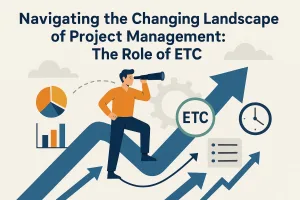Introduction
The concept of on-the-go project management (PM) has emerged as a vital strategy for ensuring project success. On-the-go PM refers to the ability to manage projects flexibly and efficiently from various locations, leveraging technology to facilitate communication and collaboration among team members regardless of their physical presence. This approach allows project managers to stay connected with their teams and stakeholders, ensuring that projects remain on track even when team members are dispersed.
The shift towards remote work has been significantly accelerated by recent global events, such as the COVID-19 pandemic, which forced organizations to adapt quickly to new ways of working. As a result, many companies have embraced remote management practices, leading to a more flexible workforce that can operate from anywhere. This transition has not only changed the dynamics of project management but has also highlighted the need for effective tools and strategies that support remote collaboration and communication.
For C-Suite executives and project managers, the importance of adaptability in modern project management cannot be overstated. The ability to pivot and adjust strategies in response to changing circumstances is crucial for maintaining project momentum and achieving desired outcomes. Embracing on-the-go PM practices enables organizations to respond swiftly to challenges, capitalize on opportunities, and foster a culture of innovation and resilience. As the business landscape continues to evolve, understanding and implementing these strategies will be essential for driving project success and ensuring long-term organizational growth.
The Evolution of Project Management
The landscape of project management has undergone significant transformations over the years, adapting to the changing needs of businesses and the workforce. This evolution is particularly relevant in the context of remote management and the increasing prevalence of on-the-go project management strategies.
Historical Perspective on Traditional PM Methodologies
Traditionally, project management methodologies were heavily reliant on in-person interactions and structured environments. Approaches such as Waterfall and PRINCE2 emphasized sequential phases and detailed documentation, which often required teams to be physically present in the same location. This model worked well in stable environments where face-to-face communication was the norm, but it posed challenges in terms of flexibility and responsiveness to change.
The Rise of Digital Tools and Technologies Enabling Remote PM
The advent of digital tools has revolutionized project management, enabling teams to collaborate effectively regardless of their physical location. Modern project management software allows for real-time communication, task tracking, and resource allocation, making it easier for teams to stay aligned and productive. Key factors contributing to this shift include:
- Cloud Computing: Facilitates access to project data from anywhere, allowing team members to contribute and collaborate in real-time.
- Collaboration Tools: Platforms like Slack, Microsoft Teams, and Asana have made it easier to communicate and manage tasks without the need for physical meetings.
- Mobile Applications: These tools empower project managers and team members to manage their tasks and communicate on-the-go, enhancing productivity and responsiveness.
Comparison of In-Office Versus Remote PM Practices and Outcomes
The shift towards remote project management has led to a reevaluation of practices and outcomes. While in-office management often fosters immediate communication and team cohesion, remote management offers unique advantages:
- Flexibility: Remote PM allows for a more adaptable work environment, accommodating diverse work styles and schedules.
- Access to Global Talent: Organizations can tap into a broader talent pool, hiring the best professionals regardless of their geographical location.
- Cost Efficiency: Reduced overhead costs associated with maintaining physical office spaces can lead to significant savings for organizations.
However, remote project management also presents challenges, such as potential communication barriers and the need for robust digital infrastructure to support collaboration. The effectiveness of remote versus in-office practices often depends on the nature of the project, team dynamics, and the tools employed.
Key Trends in Remote and On-the-Go Project Management
In the wake of the global shift towards remote work, several key trends are emerging that are reshaping how projects are managed. For C-Suite executives and project managers, understanding these trends is crucial for ensuring project success in a dynamic environment. Here are the significant trends influencing remote and on-the-go project management:
- Adoption of Cloud-Based Project Management Tools: The transition to cloud-based platforms has revolutionized project management by enabling teams to access project data and collaborate from anywhere. These tools facilitate real-time updates, document sharing, and task management, which are essential for remote teams. The flexibility and scalability of cloud solutions allow organizations to adapt quickly to changing project needs and team dynamics, enhancing overall productivity and responsiveness [1][6].
- Increasing Reliance on Agile Methodologies: Agile methodologies have gained traction as organizations seek to improve their adaptability and responsiveness to change. This approach emphasizes iterative progress, collaboration, and flexibility, making it particularly suited for remote project management. Agile practices enable teams to pivot quickly in response to feedback and evolving project requirements, fostering a culture of continuous improvement and innovation [1][11].
- The Role of Communication and Collaboration Tools: Effective communication is paramount in remote project management. The rise of various collaboration tools—such as video conferencing, instant messaging, and project management software—has made it easier for teams to stay connected and engaged, regardless of their physical location. These tools not only facilitate information sharing but also help maintain team cohesion and morale, which are critical for project success [1][10].
- Impact of Work-Life Balance on Project Efficiency: The shift towards remote work has brought work-life balance to the forefront of project management discussions. Organizations are increasingly recognizing that employee well-being directly impacts productivity and project outcomes. By promoting a healthy work-life balance, companies can enhance employee satisfaction and retention, ultimately leading to more efficient project execution. This trend underscores the importance of creating a supportive work environment that accommodates the diverse needs of remote teams [1][9].
Challenges and Solutions for Remote Project Management
The shift towards remote project management has introduced a new landscape for C-Suite executives and project managers, presenting both unique challenges and opportunities for enhancing project success. As organizations adapt to this evolving environment, it is crucial to address the common obstacles that arise in remote settings and implement effective strategies to overcome them.
Communication Barriers and Time Zone Differences
One of the most significant challenges in remote project management is communication. With team members often spread across various time zones, coordinating meetings and ensuring that everyone is aligned can be particularly difficult. This can lead to misunderstandings, delays in decision-making, and a general sense of disconnection among team members.
Solution: To mitigate these issues, organizations can implement regular check-ins and establish clear communication protocols. Utilizing asynchronous communication tools, such as project management software and messaging platforms, can help facilitate ongoing dialogue without the constraints of time zones. Additionally, scheduling meetings at times that accommodate all team members can foster inclusivity and ensure that everyone has a voice in discussions [3][4].
Maintaining Team Cohesion and Culture
Another challenge is maintaining team cohesion and a strong organizational culture in a remote environment. The lack of face-to-face interactions can hinder relationship-building and diminish the sense of belonging among team members. This can lead to decreased morale and productivity, ultimately impacting project outcomes.
Solution: To foster team cohesion, project managers should prioritize team-building activities and encourage informal interactions among team members. Virtual team-building exercises, regular social check-ins, and recognition of individual contributions can help strengthen relationships and maintain a positive team culture. Additionally, promoting a shared vision and values can unify the team, even when working remotely [6][9].
Ensuring Accountability and Performance Measurement
Ensuring accountability and measuring performance in a remote setting can be challenging. Without direct oversight, project managers may struggle to track progress and ensure that team members are meeting their responsibilities. This can lead to issues such as missed deadlines and a lack of ownership over tasks.
Solution: Implementing project tracking tools can provide visibility into individual and team performance. These tools allow project managers to set clear goals, monitor progress, and provide feedback in real-time. Regular performance reviews and one-on-one check-ins can also help maintain accountability and address any concerns promptly. By establishing clear expectations and utilizing technology to track progress, project managers can enhance accountability within their teams [8][10].
Best Practices for On-the-Go Project Managers
As project management continues to evolve, particularly in the wake of increased remote work, on-the-go project managers must adapt their strategies to ensure project success. Here are some actionable best practices that can help navigate the complexities of remote project management effectively:
1. Emphasis on Planning and Organization
- Set Clear Objectives: Clearly define project goals and objectives to ensure all team members are aligned. Transparency in the project’s purpose and process is crucial for motivation and clarity [2][12].
- Utilize Project Management Tools: Implement tools that facilitate planning, such as Gantt charts and Kanban boards, which can help visualize project timelines and task assignments. These tools are essential for keeping everyone on the same page, especially when working remotely [1][10].
2. Utilizing Technology for Real-Time Updates and Collaboration
- Leverage Communication Platforms: Use platforms like Zoom or Microsoft Teams for video calls and meetings. These tools not only enhance communication but also foster a sense of connection among team members [3][4].
- Real-Time Collaboration Tools: Employ cloud-based tools that allow for real-time updates and document sharing. This ensures that all team members have access to the latest information, which is vital for making informed decisions quickly [1][10].
3. Fostering an Inclusive Team Environment Regardless of Location
- Encourage Participation: Create an environment where all team members feel comfortable sharing their ideas and feedback, regardless of their location. Regular check-ins and digital meetups can help maintain engagement and inclusivity [4][9].
- Cultural Sensitivity: Be aware of the diverse backgrounds of team members and promote cultural sensitivity. This can enhance collaboration and strengthen team dynamics, which is essential for remote teams [10][12].
4. Tips for Maintaining Productivity While Managing Remotely
- Establish Clear Communication Protocols: Set standards for how and when team members should communicate. This helps prevent misunderstandings and keeps everyone informed [8][10].
- Flexible Work Hours: Recognize that team members may be in different time zones. Allow for flexible work hours to accommodate varying schedules, which can lead to increased productivity and job satisfaction [5][15].
- Regular Feedback and Recognition: Provide timely feedback and recognize team members’ contributions. This not only boosts morale but also encourages continued productivity and engagement [9][12].
By implementing these best practices, on-the-go project managers can effectively navigate the challenges of remote project management, ensuring that their teams remain productive and engaged, regardless of their physical locations. Embracing these strategies will not only enhance project outcomes but also foster a resilient and adaptable team culture in the face of ongoing changes in the workplace.
The Future of On-the-Go Project Management
As we look towards the future of project management, the shift towards remote and on-the-go strategies is becoming increasingly prominent. This evolution is driven by emerging technologies and changing work environments, which are reshaping how projects are executed and managed. Here are some key points to consider regarding the future developments in project management and their implications for success.
Emerging Technologies Influencing Project Management
- Artificial Intelligence (AI) and Automation: The integration of AI and automation into project management is set to redefine traditional practices. According to the Project Management Institute, a significant majority of experts believe that AI is already impacting their organizations. AI tools can enhance decision-making, streamline processes, and improve efficiency by automating routine tasks, allowing project managers to focus on strategic aspects of their projects [5][13].
- Cloud-Based Collaboration Tools: Advanced communication technologies and cloud-based platforms are empowering teams to collaborate effectively from anywhere in the world. This shift not only facilitates remote work but also enhances real-time communication and project tracking, which are crucial for project success in a distributed environment [4][7].
- Data Analytics and IoT: The use of project data analytics, supported by technologies like 5G and the Internet of Things (IoT), will play a significant role in delivering projects more efficiently. These technologies enable real-time monitoring and data-driven decision-making, which are essential for adapting to the fast-paced changes in project requirements [15].
The Potential for Hybrid Work Models
The rise of hybrid work models is transforming the landscape of project management. As organizations embrace flexible work arrangements, project managers must adapt their strategies to accommodate both remote and in-office team members. This hybrid approach can lead to:
- Increased Flexibility: Project managers can leverage the strengths of both remote and in-person collaboration, allowing for a more adaptable project execution strategy. This flexibility can enhance team morale and productivity, as employees can work in environments that suit their preferences [10].
- Broader Talent Pool: By adopting hybrid models, organizations can tap into a wider talent pool, unrestricted by geographical limitations. This can lead to more diverse teams and innovative solutions, ultimately contributing to project success [9].
Long-Term Benefits of Flexible Project Management Strategies
Adopting flexible project management strategies offers several long-term benefits for organizational growth:
- Enhanced Agility: Organizations that embrace flexibility in their project management practices can respond more swiftly to changing market conditions and client expectations. This agility is crucial in today’s fast-paced business environment, where adaptability can be a key differentiator [3][10].
- Improved Employee Satisfaction: Flexible work arrangements can lead to higher employee satisfaction and retention rates. When team members feel trusted and empowered to manage their work-life balance, they are more likely to be engaged and committed to their projects [4][12].
- Sustainable Growth: By integrating on-the-go project management strategies, organizations can foster a culture of continuous improvement and innovation. This not only enhances project outcomes but also positions the organization for sustainable growth in the long run [6][11].
Conclusion
In project management, adaptability has emerged as a cornerstone for success. As organizations increasingly embrace remote and on-the-go strategies, project managers must be prepared to navigate the complexities that come with this shift. The ability to pivot and adjust to new circumstances is not just beneficial; it is essential for achieving project goals and maintaining competitive advantage.
C-Suite executives and project managers are encouraged to invest in comprehensive training and the right tools that facilitate effective remote management. This investment not only enhances team collaboration but also ensures that all stakeholders are aligned with the project’s objectives, regardless of their physical location. By equipping teams with the necessary skills and resources, organizations can foster a culture of innovation and resilience, which is vital in today’s dynamic business environment.
As we look to the future of project management, it is crucial for leaders to approach these changes with open minds. Embracing remote project management strategies can lead to improved efficiency, greater employee satisfaction, and ultimately, project success. By recognizing the potential of remote management and actively seeking to implement these practices, organizations can position themselves at the forefront of the project management evolution. The future is here, and it is time to embrace it wholeheartedly.
Find out more about Shaun Stoltz https://www.shaunstoltz.com/about/.
This post was written by an AI and reviewed/edited by a human.



